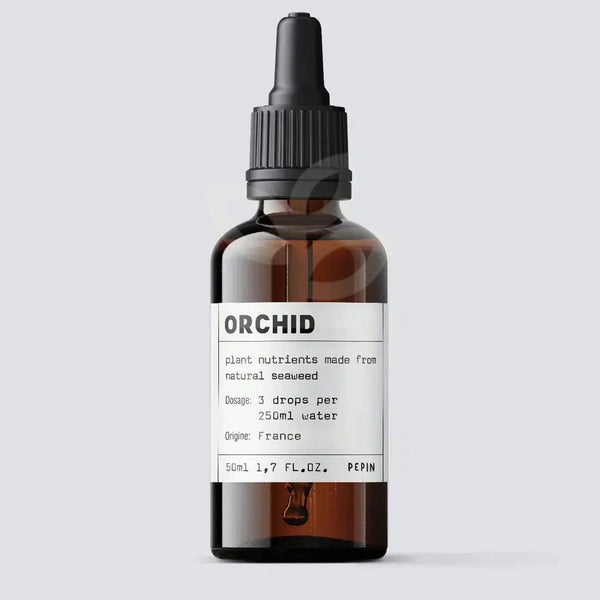Learn All About Orchid (Phalaenopsis) with our Guide
Orchids (Phalaenopsis) are the largest family of flowering plants. There are more than 25,000 different types and it is not surprising that they have been used as houseplants for many years. They give an elegant burst of colour to the home and have a unique flower shape . Native to the tropic regions of Asia and Australia, they are also the oldest flowering plant in the world.
|
Light |
Orchids (Phalaenopsis) love bright indirect light near an east facing window. |
|
Watering |
Orchids (Phalaenopsis) like to be watered once a week during the growing season (March-September). Ensure your Orchid (Phalaenopsis) does not sit in water. |
|
Humidity |
Orchids (Phalaenopsis) like humid environments so you can mist yours frequently to boost humidity. |
|
Temperature |
Orchids (Phalaenopsis) prefer temperatures between 18-26c. |
|
Fertilizer |
Feed your Orchid (Phalaenopsis) monthly in the growing season (March-September) and every two months from September-February. |
|
Toxicity |
Orchids (Phalaenopsis) are non-toxic to humans and animals, they can be around pets and small children. |
|
Additional Care Information |
Orchids (Phalaenopsis) like to be watered slightly differently to other houseplants. They prefer to be dipped in water and then allowed to drain. In nature, orchid roots are often exposed to light. They normally come in clear pots to mimic this so its best not keeping your orchid in a decorative pot at all times as the roots will benefit from exposure to natural light. |
|
Troubleshooting |
Leaves changing colour is normal for the older leaves, but if it is affecting young leaves this could be a sign of too much light. Move your Orchid (Phalaenopsis) to a shadier spot. Shrivelled leaves indicates not enough water. Increase the frequency of watering and mist the Orchid (Phalaenopsis). Although it can take several months for an Orchid (Phalaenopsis) to reflower, no flowers can indicate not enough light. Move to a brighter area, continue care as normal and be patient! |
The information above is written by Plantila and should be used as a guide only. Please don't hesitate to contact us if you need any additional advice. If you have purchased a plant at Plantila that's not doing so well please send us a picture via WhatsApp to 028 42 798478 and we will try to help.
















































